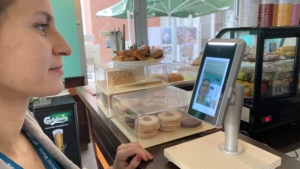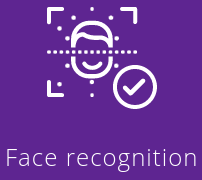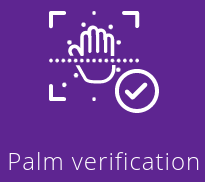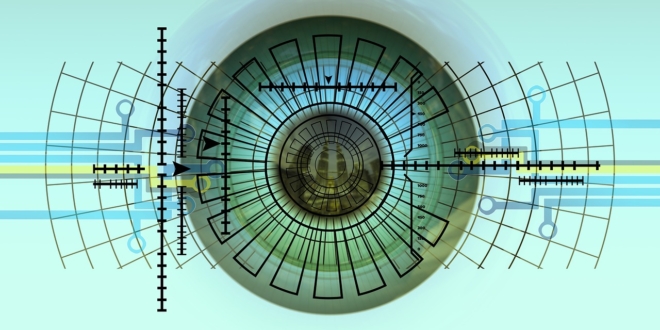
European shoppers in Budapest and Spain are shopping and paying with a wink and a wave with the launch of Hungarian fintech PeasyPay.
Imagine. No more carrying your purse, wallet, smartphone, or credit card while shopping and paying for groceries, lunch at your favorite cafe, fresh croissants at the Patisserie, or shopping at your favorite fashion store.
A startup launched in December 2019 in Hungary, PeasyPay lets customers and shoppers pay for purchases by simply showing their faces and taking a picture of the palm of their hands, making the whole process faster and more convenient than traditional payment methods.
OTP Bank and e-Group are joining forces to spread PeasyPay further in the Hungarian capital in a marketing campaign to reach local hospitality and retail sectors.
Biometrics meets smart technology

Digital profiles of the customers’ palms and faces are created through the app (available on both Android and iOS) by taking a selfie and a picture of their palm with their mobile’s camera. Shoppers then register their bank card details on an integrated, secure payment gateway.
“The system is composed of three elements,” PeasyPay’s product leader Csaba Körmöczi explains, “a smartphone app for the customer (used only during registration), a smartphone app for the merchants, and the payment terminal”.
The actual in-store payment process uses a specially-designed point-of-sale (POS) machine equipped with cameras and facial recognition software that scans customers’ faces and palms and compares them to the biometric template created in advance.
When the two biometric measures match, the payment is authorized, and the amount charged to the bank or credit card registered in the payment gateway of the corresponding PeasyPay account. The combination of face and palm scanning solves the issue of mismatching a person, as facial recognition systems’ accuracy degree can vary significantly depending on the person, software, and situation.
GDPR standards compliant

PeasyPay is designed to be fully compliant with all European regulations, especially GDPR and national data protection laws. Under GDPR’s provisions, the processing of biometric data for uniquely identifying purposes is not authorized, unless the data subject has given explicit consent for a specified purpose.
While many payment systems are proprietary, using private infrastructures and ecosystems, PeasyPay is designed as an open system and any bank or merchant can join the Innovative new payments program.
EU & global expansion ahead
The PeasyPay solution has operated in Budapest since December 2019 – with a break in the spring due to the pandemic. The application was piloted in a busy coffee shop frequented by the tech-savvy employees of the city’s second district.
A second larger pilot program, targeting the city’s food, retail, and hospitality industry, is currently underway in Guadalajara, Spain. The trial started in July, in four small shops located in the city center, and is expanding to other businesses. Twenty-five nearby shops including bakeries, butcher shops, grocery stores, cafés, bookstores, print shops, and herbal retailers will participate with plans to make the PeasyPay solution available in department stores as well.

More pilot projects are planned elsewhere. In the UK, the system is designed to let taxi drivers seamlessly pay the fee to enter Glasgow Airport’s parking area, while in Slovenia, the pilot will take place in a popular restaurant.
During the pilot phase, only customers in Hungary, Spain, Slovenia, and the UK will be able to download PeasyPay from their local app store. By the end of the year, the fintech team hopes to roll out the app globally.
PeasyPay was launched by EIT Digital within its Innovation Factory, where a number of EIT Digital Partners come together to launch technology ventures into the market. The partnership includes Ci3 and Liberbank in Spain, E-Group and OTP Bank in Hungary, and Slovenia’s AV Living Lab.








LET’S CONNECT